by Dan | Sep 3, 2019 | Podcast
LGOPs, an acronym from the airborne infantry community, stands for Little Groups of Paratroopers. In World War II, during airborne drops, troops would be scattered across the French or Italian countryside. They would quickly band together and begin wreaking havoc on the enemy forces, cutting communication lines, disabling tanks, and conducting ambushes. This ability came from the American culture of inspiring soldiers to take the initiative. It’s a reminder of the power of small groups of people in our civic life. A determined group of citizens can band together to affect change in their community. Join the little groups of people in your community and enjoy the impact of serving a cause greater than yourself.
Podcast: Play in new window | Download
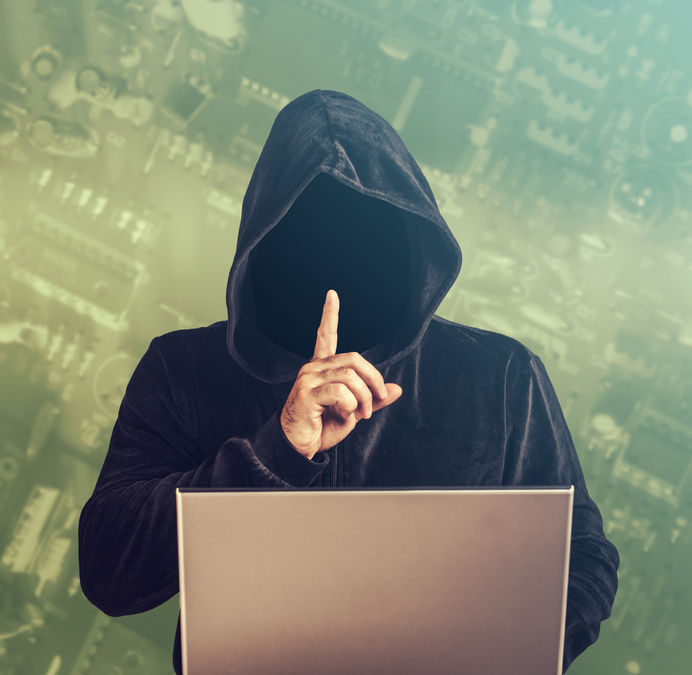
by Dan | Aug 28, 2019 | Uncategorized
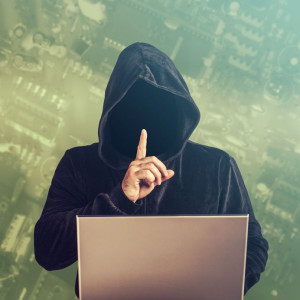 We all know the First Amendment protects freedom of speech, but in an era when people can post online under a pseudonym or without identifying themselves by a name at all — real or fake — the question arises: does the First Amendment also protect speech published or articulated by someone whose identity is unknown?
We all know the First Amendment protects freedom of speech, but in an era when people can post online under a pseudonym or without identifying themselves by a name at all — real or fake — the question arises: does the First Amendment also protect speech published or articulated by someone whose identity is unknown?
Unfortunately, there is always a possibility that someone’s online account — social media, blogs, forums, etc. — can be hacked or connected to their real life identity in a data breach, due to the nature of website registrations requiring a person’s name and email address to create the account in the first place.
Although there are always technology-related risks when it comes to online privacy, what about the legal risks? Are anonymous commenters protected against legal retribution if someone or some organization wants to sue them for what they published online? Should anonymous commenters — or the platform on which they posted the controversial content — be forced to reveal their identity if a legal concern arises?
There have been countless uses of pseudonyms connected to the issue of freedom of speech throughout American history: Ben Franklin’s “Silence Dogood,” Alexander Hamilton’s “Phocion,” Thomas Jefferson’s “correspondent from Virginia” and many others.
But the proliferation of web technologies and electronic communication has made it easier than ever for people to conceal their identities while publishing content, which brings us back to the original question: should the First Amendment apply similarly to speech articulated under a pseudonym or completely anonymously? Let’s unpack what we currently understand about the interplay between the First Amendment and anonymous speech:
McIntyre v. Ohio Elections Commission
In this 1995 Supreme Court decision, the majority wrote: “Anonymity is a shield from the tyranny of the majority….It thus exemplifies the purpose behind the Bill of Rights and of the First Amendment in particular: to protect unpopular individuals from retaliation…at the hand of an intolerant society.”
In other words, SCOTUS found that anonymity ought to be protected when it comes to freedom of speech, whether it’s written expression, public speech or online speech. In the 2017 case of Signature Management Team, LLC v. John Doe, the U.S. Court of Appeals for the Sixth Circuit found anonymous speakers/commenters can maintain their anonymity even if they lose a legal case against them, due to the likelihood of harm resulting from such revelations.
A more recent district court case involving a non-American Reddit commenter and Jehovah’s Witnesses went a step further by not only protecting individuals’ rights to free, anonymous speech but also protecting freedom of speech for an Internet user not living in the United States.
When is Anonymous Speech Not Protected?
According to Digital Media Law Project, “those harmed by unlawful anonymous speech — whether by defamation, misappropriation of trade secrets, or whatever else — also have a right to seek compensation for their injury.” This means that anonymous commenters are not always 100% protected — if the speech involves illegal actions and/or harmful consequences, there’s a risk the anonymous individual’s identity could be unmasked.
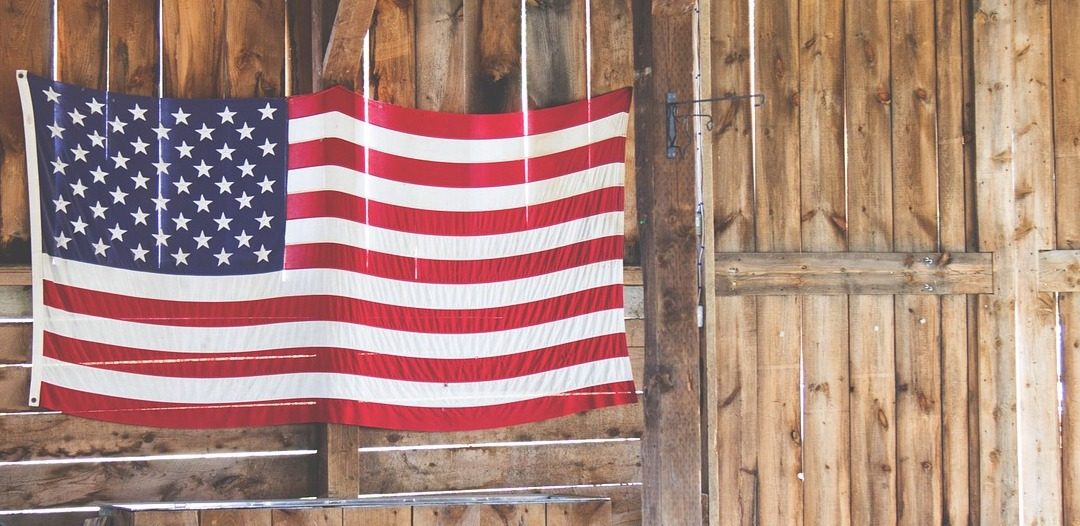
by Dan | Aug 27, 2019 | Newsletter
Dear FAV Advocates,
One of my former students from West Point recently reminded me that I taught the rule of LGOPs to the class. LGOPs, an acronym from the airborne infantry community, stands for Little Groups of Paratroopers. In World War II, during airborne drops, troops would be scattered across the French or Italian countryside. They would quickly band together and begin wreaking havoc on the enemy forces, cutting communication lines, disabling tanks, and conducting ambushes. This ability came from the American culture of inspiring soldiers to take the initiative.
It reminds me of the power of small groups of people in our civic life. A determined group of citizens can band together to affect change in their community. It just takes a few and reminds me of one of my favorite quotes of all time, from Margaret Mead, “Never doubt that a small group of thoughtful, committed citizens can change the world; indeed, it’s the only thing that ever has.” Citizenship is not a spectator sport. Join the little groups of people in your community and enjoy the impact of serving a cause greater than yourself.
Citizenship is not a spectator sport! If you like our newsletter, please share with a friend!
Steve
Symposium Update
FAV continues to work on creating an exciting experience for our fourth annual National Symposium. We will explore Polarization in the Public Square. Thank you to all who have already registered. We only have a few VIP level tickets remaining. If you would like to join us on Capitol Hill Friday evening, September 20th, for a private tour and reception of the Capitol Building, get your ticket before August 30th. We will not be able to guarantee VIP tickets after that. You’ll get the chance to meet many of the speakers for the Symposium, hear from sponsors, and view the artwork inside the historic building.
Buy one, get one free! Are you a previous Symposium attendee? Buy a ticket before August 30th and bring a guest free.
Register yourself at the link and email [email protected] to get your guest registered.
Are you traveling and need a hotel room for the Symposium? Don’t wait! We only have a few rooms in our 50% off discount block at the Marriott. Click on the link below to book a room.
Hotel Accommodations:
Washington Marriott at Metro Center
775 12th Street NW Washington, District of Columbia 20005
We have secured a great group rate of $179/night plus taxes. To make your reservation just click or copy and paste this link: https://book.passkey.com/e/49959701
In the News
Facebook, Twitter say China ran disinformation against Hong Kong protesters: Read More
From the Freedom Forum Institute at the Newseum. Katharine Kosin and Kirsti Kenneth reflect on the renewed public discussion of potential consequences of conspiracy theories, the presence of places they live on the internet and ways to stop the spread of this damaging misinformation: Read More
San Francisco School Board May Save Controversial George Washington Mural – The New York Times: Read More
Upcoming Events
Symposium 2019, September 20-21st, Washington, D.C.
Symposium 2020, September 18-19th, Philadelphia
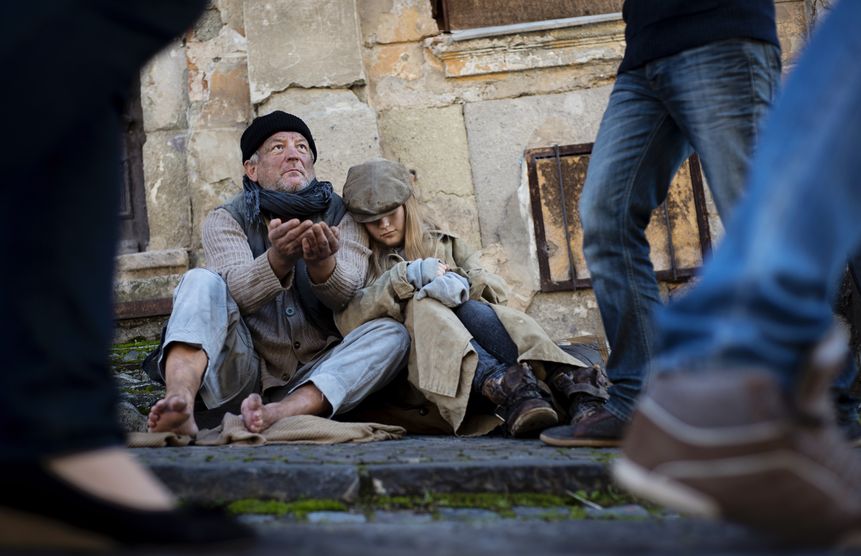
by Dan | Aug 14, 2019 | Uncategorized
 Many cities across the country have been restricting the practice of panhandling — begging or requesting money in public places. But are these laws potentially infringing on the panhandlers’ First Amendment right to freedom of speech? This question becomes more complicated when you take into consideration the differences between verbally asking strangers for money and the act of simply holding a sign that asks for money.
Many cities across the country have been restricting the practice of panhandling — begging or requesting money in public places. But are these laws potentially infringing on the panhandlers’ First Amendment right to freedom of speech? This question becomes more complicated when you take into consideration the differences between verbally asking strangers for money and the act of simply holding a sign that asks for money.
While many people do not appreciate being approached by panhandlers, the fact remains that they have a right to be there and exercise their free speech rights in asking for money, work opportunities, food or other items. But to what extent is panhandling protected by the First Amendment? Let’s explore this more in-depth:
Village of Schaumburg v. Citizens for a Better Environment
In this 1980 Supreme Court case, the Citizens for a Better Environment nonprofit organization sued the village of Schaumburg for what it alleged was an unconstitutional ordinance against door-to-door solicitation by charities that did not use at least 75 percent of their funds for “charitable purposes” (excluding administration costs such as nonprofit employees’ salaries).
When the case reached the Supreme Court, it resulted in a 8-1 decision in favor of the nonprofit. The majority opinion included important arguments that later became integral to protecting panhandlers’ rights, including statements such as “solicitation for money is closely intertwined with speech” and “solicitation to pay or contribute money is protected under the First Amendment.”
Passive vs. Aggressive Panhandling
There have been multiple legal battles involving cities and solicitation restrictions since Citizens for a Better Environment, many of which have ruled in favor of panhandlers on the basis of free speech. Other decisions cite the Fourteenth Amendment alongside the First Amendment.
One common area of debate when it comes to anti-solicitation ordinances is the passivity or aggressiveness of the panhandling. For example, is it someone standing on the side of a road, holding a sign that asks for money? Or is it someone actively (and perhaps menacingly or threateningly) pursuing citizens and harassing them for money? There’s a big difference between the two main forms of panhandling, the latter of which may be considered robbery or public nuisance/disturbance and thus, not protected by the First Amendment.
Common Ordinance Restrictions
According to the First Amendment Encyclopedia published by Middle Tennessee State University, city ordinances regulating panhandling and other forms of solicitation in public spaces must follow these guidelines:
- be neutral in content;
- be narrowly tailored;
- leave open ample alternative channels of communication;
- serve a significant government interest that is pressing and legitimate.
Consequently, many municipalities are constantly updating their solicitation ordinances to avoid trampeling on panhandlers’ First Amendment rights while simultaneously balancing the public’s desire for minimal nuisances.
by Dan | Aug 4, 2019 | Podcast
Podcast: Play in new window | Download

by Dan | Jul 24, 2019 | Uncategorized
 As we increasingly move toward a cash-less society with the help of instantaneous payment apps like Venmo, Google Pay, Apply Pay, and credit card-specific smartphone payment apps, we’re at risk of hindering our democracy. How so?
As we increasingly move toward a cash-less society with the help of instantaneous payment apps like Venmo, Google Pay, Apply Pay, and credit card-specific smartphone payment apps, we’re at risk of hindering our democracy. How so?
Perhaps this isn’t a major concern in the United States yet, but the protests in Hong Kong have brought to light a concerning issue in regards to personal privacy and cash-less payments. In Hong Kong, there’s something called an “Octopus Card,” which is distributed by a financial company owned primarily by the government of Hong Kong. Most residents of Hong Kong rely on this card to pay for everything from groceries to clothing, but in wake of the protests, people are worried that the government could be tracking their location and financial activity with the help of the Octopus Card.
Although the U.S. government isn’t heavily involved in the cash-less payment markets (yet?), it’s nevertheless concerning how much of a privacy violation these smartphone apps could be. After all, a privacy researcher in Berlin managed to analyze over 18 million Venmo users’ information related to more than 208 million public transactions because the users never changed the app’s default settings to private. This means that many users could be inadvertently sharing their purchasing habits, location, lifestyle choices and other personal information with literally anyone who can access and browse through the app.
As we strive to improve consumer convenience with cash-less payments, individuals’ privacy, freedom of speech and even freedom of assembly could be at stake. Let’s examine this issue further:
Surveilling Your Financial Activity
As an article in The Atlantic points out, “In a cashless society, the cash has been converted into numbers, into signals, into electronic currents. In short: Information replaces cash….and wherever information gathers and flows, two predators follow closely behind it: censorship and surveillance.”
Another article from Ars Technica in 2018 similarly argues that Venmo (and other cash-less payment systems like PayPal) are frequently criticized by consumer groups and even targeted by the Federal Trade Commission for consumer privacy violations. Since the default setting for many apps’ transactions is “public,” users could be unwittingly sharing their personal financial activities with anyone who wants to view them. This, in turn, could lead to serious issues related to surveillance if the government or other entities can see how much your spending on what at any given point (your entire payment history is also public on the default setting).
Location Tracking
Another concern for individual privacy rights advocates is the potential for governments to track where consumers are spending their money. Some payment apps keep location records on their users (how detailed and how long that information is kept remains unknown).
As we can see from peoples’ personal experiences with civil asset forfeiture laws, there’s tremendous potential for abusing individuals’ privacy, freedom of expression and freedom of assembly if just about anyone can view their financial and location records at any time. As more and more consumers rely on cash-less payment apps, we need to do more as a society to ensure their rights will not be violated in the midst of everyday financial transactions.
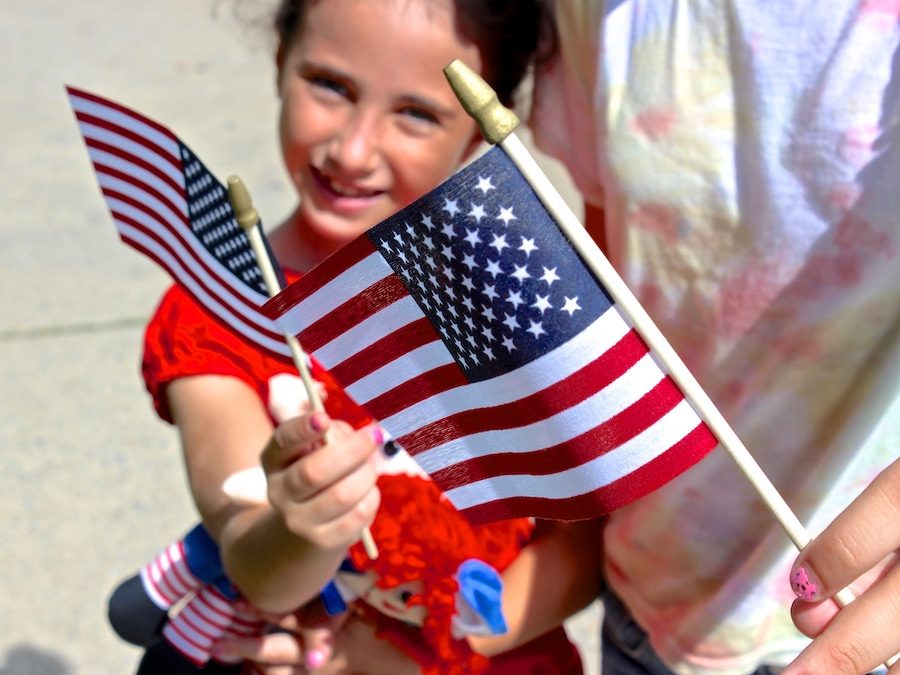
by Dan | Jul 18, 2019 | Newsletter
Dear FAV Advocates,
Let’s hear from a veteran who sheds his military uniform and looks for ways to keep serving in his community in Georgia.
Hello Everyone,
I just recently joined the First Amendment Voice (FAV) team as the South Eastern Region Delegate. It is with great excitement that I finally get to introduce myself to a great network of colleagues and fellow civil servants. Currently, I’m a Junior Sociology student at Columbus State University. I’m also a husband and father of two children living in the great State of Georgia. Before starting my post-secondary education, I was enlisted in the Army for 8 years and served three combat tours as an Infantryman.
While transitioning from the military, I was in search of a new mission that would also embody some of the important values that I wholeheartedly supported and fought for while enlisted. Most important of those were duty and selfless service. When I came across First Amendment Voice in its earlier stage with Executive Director Steve Miska, it was during the 2016 election. It was around this time, I resolved to bring unity to my community and to dedicate my life towards a greater good.
During this time, I developed a plan through prayer, to continue my duty and selfless service by seeking out local, state, and federal civil service opportunities while continuing my education. I completed a fellowship with The Mission Continues nonprofit organization, and this last spring, I completed an internship with the Georgia General Assembly. As I was building networks and growing my experience, I was also preparing myself for federal level service. As an advocate for FAV, it was easy for me to begin serving as a delegate.
I look forward to growing the organization and partnerships. First up: get an on-campus club started early fall. FAV is on the agenda, and I have the support of multiple faculty members to include the Sociology Department Chair. I have also been approved to start on-campus engagements and look forward to creating a campus kit that can further help future colleges across the country as our organization grows in membership and support.
Again, it is with great excitement that I get to be a part of FAV, and that I have the honor to work surrounded by so many like-minded and passion driven people. I look forward to meeting all at the FAV National Symposium in the Fall!
Sincerely,
Dylan S. Fessler
Delegate FAV
Citizenship is not a spectator sport! If you like our newsletter, please share with a friend!
Steve
Podcast
We are very excited to bring the #FindYourVoice podcast to our audience. If you don’t have time to read the email or prefer to learn more during your morning commute, download our podcast. We take the inspirational stories from the monthly newsletter and provide more context.
by Dan | Jul 16, 2019 | Podcast
Podcast: Play in new window | Download

by Dan | Jul 10, 2019 | Uncategorized
 We’ve written countless blog posts about free speech in higher education and on high school campuses, but a new troubling trend seems to be emerging nowadays: state laws designed to protect free speech that, due to their vaguely worded mandates, may actually silence and/or punish those expressing dissent and other forms of counter-speech.
We’ve written countless blog posts about free speech in higher education and on high school campuses, but a new troubling trend seems to be emerging nowadays: state laws designed to protect free speech that, due to their vaguely worded mandates, may actually silence and/or punish those expressing dissent and other forms of counter-speech.
Clearly this is not the intent of these pieces of legislation, but they nevertheless demonstrate the difficulty of navigating free speech laws and college policies while balancing individuals’ rights, regardless of their political beliefs or affiliations. Here are just some of the many examples of potentially problematic free speech protection laws that are either newly in effect or going into effect soon:
“Disciplinary Sanctions”
Alabama recently passed HB498, which effectively bans the existence of designated “free speech zones” on college campuses in the state. On the surface, this seems like a great victory for free speech advocates, but there’s a troubling flip side: the “disciplinary sanctions” that could be imposed against those who interrupt/disrupt someone else’s free speech are incredibly vague.
In other words, we have little idea of what the consequences would be if a counter-protester gets involved. Could they be sued? Kicked out of the college? Arrested? There are few clear consequences outlined in the bill, which could force the college administration, law enforcement officials and/or the state to prioritize one person’s freedom of expression over another’s.
Does the person who began speaking/protesting first get priority? What if they’re both shouting over each other, which arguably fits under this law’s definition of “substantially” disrupting another person’s free expression?
Until these questions are resolved, this law could pose a serious threat to counter-protesters’ First Amendment rights due to the sheer ambiguity of the law itself.
“Interfering” with Others’ Free Speech
In addition to Alabama, Texas recently passed SB18, which substantially increased protections for free speech rights on college campuses throughout the state of Texas. However, the bill poses the same problems as Alabama’s new bill: the consequences of “interfering” with someone else’s freedom of expression are not clearly outlined in the bill.
Specifically, the bill says there could be “disciplinary sanctions for students, student organizations, or faculty who unduly interfere with the expressive activities of others on campus.” While this sounds like a strong protection in favor of free speech, what exactly constitutes “unduly interferes”? Would a counter-protester be considered “unduly” interfering with the original protester’s free expression?
These are just two of the many examples of free speech controversies going on around the country’s college campuses nowadays, but they still serve as important reminders that even well intentioned legislation in favor of free speech can have damaging consequences.

by Dan | Jun 26, 2019 | Uncategorized
 Some of the most groundbreaking reports that have been investigated and published by journalists over the past several decades were only possible thanks to a free press concept known as “reporter’s privilege.” According to the First Amendment Encyclopedia, reporter’s privilege refers to the idea that journalists should not and cannot be compelled to reveal their anonymous sources or other confidential information in a court of law.
Some of the most groundbreaking reports that have been investigated and published by journalists over the past several decades were only possible thanks to a free press concept known as “reporter’s privilege.” According to the First Amendment Encyclopedia, reporter’s privilege refers to the idea that journalists should not and cannot be compelled to reveal their anonymous sources or other confidential information in a court of law.
Although reporter’s privilege is not absolute — and the extent of its protections under the First Amendment remain somewhat murky after the 1972 Branzburg v. Hayes Supreme Court decision — many states have their own constitutional statutes for protecting reporters’ sources and confidential information obtained in the course of their standard reporting duties.
Shield Laws
The concept of a shield law is related to reporter’s privilege because these are legal mechanisms that “shield” reporters against the threat of forcibly publishing or revealing their sources’ identities and other confidential matters. As of 2019, there remains no federal-level shield law protecting journalists, although 49 states and the District of Columbia have enacted their own versions of shield laws to ensure the free flow of information without legally compromising journalists who are simply doing their jobs.
In cases where shield laws did not apply or were not sufficient enough to protect the journalists, some reporters have invoked the 5th Amendment as a means for protecting their sources.
When Are Sources Not Protected?
Reporters’ sources may not be protected in instances where the shield laws are not clearly applicable, such as the recent case of an online journalist in Nevada, who a judge said must reveal his source because he was not previously a member of the Nevada Press Association (note: the Nevada state shield law does not explicitly specify that it only applies to NPA members).
In other cases, a journalist may feel ethically obligated to reveal her source or confidential information. It’s never an easy decision for reporters to withhold information about their interview subjects and other stakeholders involved in news stories, since transparency is another goal of every journalist. But this “privilege” is integral to ensuring a free press in the United States so perhaps it’s time for the federal government to enact its own shield law in line with the First Amendment’s guarantee to a free and independent press.


 We all know the First Amendment protects freedom of speech, but in an era when people can post online under a pseudonym or without identifying themselves by a name at all — real or fake — the question arises: does the First Amendment also protect speech published or articulated by someone whose identity is unknown?
We all know the First Amendment protects freedom of speech, but in an era when people can post online under a pseudonym or without identifying themselves by a name at all — real or fake — the question arises: does the First Amendment also protect speech published or articulated by someone whose identity is unknown?

 Many cities across the country have been restricting the practice of panhandling — begging or requesting money in public places. But are these laws potentially infringing on the panhandlers’ First Amendment right to freedom of speech? This question becomes more complicated when you take into consideration the differences between verbally asking strangers for money and the act of simply holding a sign that asks for money.
Many cities across the country have been restricting the practice of panhandling — begging or requesting money in public places. But are these laws potentially infringing on the panhandlers’ First Amendment right to freedom of speech? This question becomes more complicated when you take into consideration the differences between verbally asking strangers for money and the act of simply holding a sign that asks for money.
 As we increasingly move toward a cash-less society with the help of instantaneous payment apps like Venmo, Google Pay, Apply Pay, and credit card-specific smartphone payment apps, we’re at risk of hindering our democracy. How so?
As we increasingly move toward a cash-less society with the help of instantaneous payment apps like Venmo, Google Pay, Apply Pay, and credit card-specific smartphone payment apps, we’re at risk of hindering our democracy. How so?

 We’ve written countless blog posts about
We’ve written countless blog posts about 
 Some of the most groundbreaking reports that have been investigated and published by journalists over the past several decades were only possible thanks to a free press concept known as “reporter’s privilege.” According to the
Some of the most groundbreaking reports that have been investigated and published by journalists over the past several decades were only possible thanks to a free press concept known as “reporter’s privilege.” According to the 



